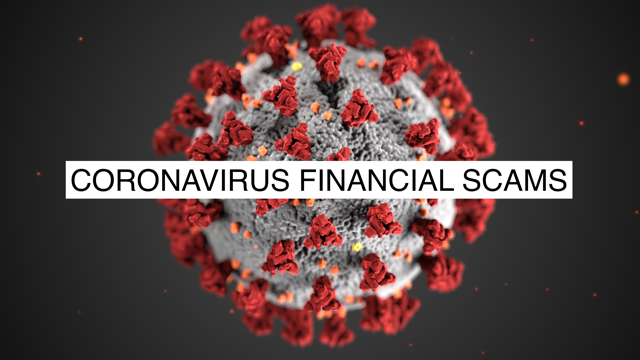
Magazine, Making Money, By Julian Do, Contributor to Immigrant Magazine
Los Angeles — There’s a pattern to scams. They often thrive in extreme situations of economic boom or bust because the con artists know people would be either cavalier or desperate about money. And during this Covid-19 pandemic, the fraudsters see vulnerabilities everywhere.
“Care about your family? Purchase your own Corona test kit HERE! The demand is extremely high, so hurry up! healthme123.com.” This urgent text seems like a lifeline but it’s actually a scam designed to prey on people’s concerns for their loved ones.
Out of anxiety, a consumer decided to respond and subsequently gets instructions to transfer money or provide credit card information to the fraudster for the kit. But once the transaction is completed, the victim would never hear from this person again.
At this time, all Covid-19 testings are administered through the state’s and counties’ designated health centers. The FDA has not authorized any commercial home kits for purchase.
Fraud is a social cancer, a part of daily life worldwide. This malady has been around since the dawn of human civilization because it can evolve and adapt to new environments easily. For instance, although the world has only begun transitioning to a digital economy, the fraudsters are already there with the latest technology to trick consumers into scams.
Annually, millions of people and businesses are fallen victims to one type of scams or another. The financial losses can range from billions of dollars in business contracts to a few hundreds of dollars in fake medications.
There’s no cures to get rid of this crime. However, the best way to avoid getting trapped into one is for people to use common sense, understand the key elements that fraudsters often use to create scams, and arm themselves with updated information.
Among the two most common and effective elements that fraudsters tend to take advantage of are the people’s fears and economic desperation, which currently are in full display during this pandemic.
“Scammers are smart. They follow the media headlines,” said Monica Vaca, associate director of the Division of Consumer Response and Operations at the Federal Trade Commission (FTC). “And the current headlines are Covid-19 and the federal stimulus money.”
Vaca spoke to the media via a May 15 zoom briefing, organized by Ethnic Media Services (EMS), about the dangerous increase of scams related to Covid-19 among diverse communities.
As an independent federal agency, the FTC’s mission is to ensure the economy’s vibrancy through consumer protection and fair competition in all sectors. Under this mandate, some of the FTC’s core activities are to protect consumers from scams and prosecute fraudsters.
According the FTC Covid-19 Complaints tracking report, as of May 26, there have been 55,590 reported complaints — of which 56% involved fraud — with losses amounted to about $40.38 million to consumers nationwide.
Among the 50 states, California tops the list with 5,971 complaints, followed by Florida (3,676) and New York (3,272).
Demographically, the most vulnerable group is aged from 30 to 49 but the age bracket with the highest reported losses is between 50 and 69.
The top three common contact methods that the fraudsters often use to carry out their scams are through cell phone, E-mails, and text messages — all of which are the preferred communication means in this digital age.
Scamming by phone is by far the most popular approach because from the fraudsters’ perspective, the robocalls are easy, cheap — a million calls can be placed in an hour through computer software — and most importantly, very effective.
The Youmail Robocall Index, developed by the robocall blocking service Youmail, shows that in the period of 12 months from May 2019 to April 2020, there were 2.9 billion robocalls placed with an average of 8.7 calls per person in the US. About 3 to 5 percent of people actually responding to these robocalls, and when they press “1” for more information, the scams would begin, according to Youmail.
Through these contact methods, the fraudsters would tap into the consumers’ anxieties and concerns about Covid-19 and also cleverly spinning their scams in multiple languages to target diverse communities.
“Although we still don’t have a vaccine yet, let alone a cure, but many scammers blatantly advertise that they have herbal medicines that can cure Covid,” said Vaca. “Unfortunately, out of fears, many people believe them.”
Besides exploiting the angst of Covid-19, con artists also deceive consumers with false monetary deliveries and guarantees.
During this economic downturn, a huge number of people have become unemployed and are under enormous pressure to find money and resources to pay rent and meet family needs. Similarly, facing potential bankruptcy, many small businesses have become desperate for federal loan assistance and any kinds of business contract.
All together, these individuals and businesses have become a prime target for tricksters.
Out of the blue, these individuals and firms suddenly get emails with links to websites that offer services to help them obtain federal stimulus checks or contracts for their businesses, said Vaca. And this method is called phishing.
In these phishing attacks, by clicking on these links, malware are released into target computers which allow the scammers to extrapolate the victims’ private data. In many cases, the scammers have bought domains with similar government agency names to pose as official websites. Once landed on these fake sites, the victims are provided with a series of steps which involve filling out crucial private information that lead to identity theft.
There are some basic information about the government that the public should know, Vaca advised. They would never allow private services to obtain stimulus assistance on behalf of someone else, email any consumer directly, or award business contracts to any individual.
Another clue to watch out for is when the fraudsters say they can accept gift cards, money transfers, and even Bitcoins. No government agencies would accept payments in any of these methods.
Currently, the latest scam is to send out text messages about contact tracing, a legitimate program sponsored by a state’s or county’s department of health to identify and monitor people who have had contact with Covid-19 patients.
While an official contact tracing text message would only send an alert that a contact tracer would be calling, a fake message would ask the consumer to click on the provided link, which is designed to release a malware into the cell phone, the same way a fake email would do to a computer, to access private and financial information.
To protect yourselves and loved ones, Vaca advised everyone to use common sense, be skeptical about claims that sound too good to be true, and visit the FTC website for updated information to be aware about the latest scams to avoid.









